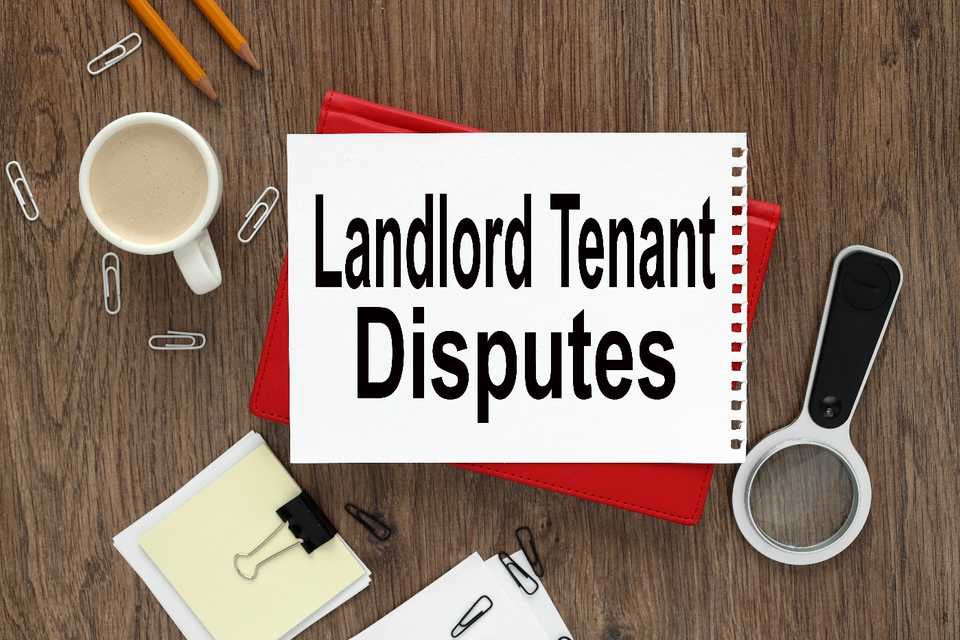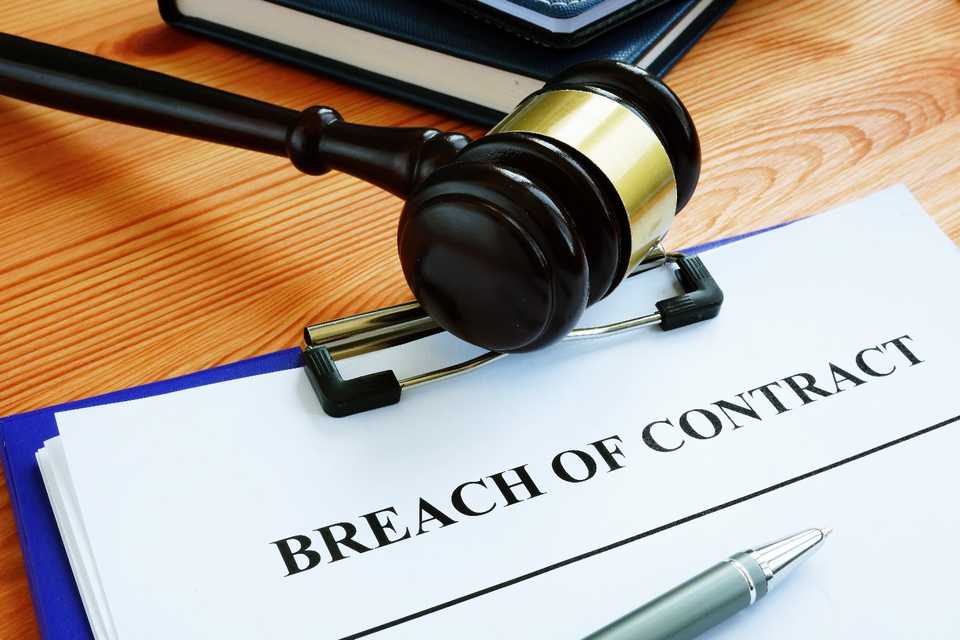Are you planning to rent a commercial property? We want to provide you with everything you need to know about commercial lease agreements, tenancy rights, how to end tenancy, and more!
The Commercial Tenancies Act (CTA) in Ontario defines the rights and obligations of landlords and tenants. However, a signed lease contract can take precedence over the Act.

Read on to understand more about being a commercial property tenant before you sign a lease. If you are having problems with a current lease, JuriGo’s partners can help you!
Compare lawyers in your area who specialize in commercial real estate lease with no cost or obligation.
Just fill out the short online form on this page to get started.
Commercial Lease Agreements and how they work
If you enter into a lease for a commercial space for your business, you are bound by its terms and conditions with your landlord.
There is no standard commercial lease or contract because there are many types of businesses. Below are some of the most common things that a lease must include:
-
The cost of the rent with stipulations on rent increases and notices;
-
The required deposit amount;
-
The insurance requirements;
-
Obligations regarding repairs and maintenance;
-
Conditions for lease renewal and termination;
-
The length of the tenancy (fixed-term or monthly);
-
Other terms or conditions agreed upon by the landlord and tenant.
Commercial leases vary so you must give careful thought to the space required by your business and other requirements. If you wish to do some renovations, make sure the lease allows you to do so and what conditions are attached to the improvements you make.
It is always a good idea to consult a real estate lawyer regarding a lease to make sure it meets your best interests.
The Rights of Commercial Tenants
Rent is one of the biggest expense for many businesses . Lease contracts don’t always address certain issues such as timelines for repairs. Even if they are indicated in the lease, enforcing this issue can be difficult without taking some form of legal action.
It is also legal for landlords to increase rent at the end of the term.
Many commercial landlords are also small business owners who are aware that reasonable rent increases also protect their future income. Unfortunately, not all landlords follow this principle.

As a commercial tenant, what rights do you have in Ontario? Sad to say but landlords hold most of the cards.
You have the right to enter into a commercial lease and that is about it. You have to ensure that you are happy with the terms of the agreement because once you sign it, you are legally bound.
A commercial tenant can apply to the Small Claims Court for any dispute with a commercial landlord for money or property not exceeding $35,000. For a claim above $35,000, a tenant can apply to the Superior Court of Justice.
Obligations of a commercial tenant
A tenant must pay rent to the landlord on the due date indicated in the lease. He cannot withhold rent because a landlord fails to perform an obligation under the lease.
Having a commercial property lawyer review the agreement and negotiate with your landlord is the best thing to do before entering a lease contract.
Would you like a lawyer to review the lease offer? Do you need help with a commercial landlord dispute?
Find the right commercial property lawyer in your area using our short online form!
The rights and obligations of Landlords in Ontario
As we mentioned earlier, the CTA defines the rights and obligations of each party to a lease agreement. It also covers what landlords are obligated to do for the property and the tenant.

These include:
- The right to end tenancy if the tenant does not meet his obligations;
- The right of reentry which means the landlord can take back the property is a lease condition is not satisfied. For instance, if the property is not being used for the agreed upon function.
- The right to seize tenant possessions due to non-payment of rent or money owed;
- The right to seek damages for loss of rental income through the Superior Court of Justice;
- A landlord can also apply to the Small Claims Court to collect balance owed from a lease agreement;
- Obligation (mandatory) to give notification of a breach of lease within a reasonable time to allow the tenant to comply.
A lease agreement is a critical factor to the success of a business. Before entering into a lease contract, consult a commercial tenancy lawyer in JuriGo.
Do landlords have to offer a new lease in Ontario?
Landlords are not obligated to offer a new lease . This is a common method used by landlords to force a tenant to vacate the space.
Once a lease term ends, a new agreement may not be offered by the landlord. He will increase the rent each month until the lessee is forced to vacate.
How much can rent increase in Ontario?
Whether the landlord gives you a lease or not, there is no limit to rent increase when your term ends. It is common to hear landlords increase rent by 10, 20, or even 50% after the lease expires.
You can always try to negotiate a rent cap in a lease agreement with your landlord but know that it is quite rare. In the Greater Toronto Area (GTA) commercial rent went up by 20% from 2021 to 2023. In other words, landlords can legally increase rent as they please at the end of the term.
Things to Consider About Commercial Lease Disputes

Below are a few pointers to consider about commercial lease disputes in Ontario.
- Make sure to understand what is written on your lease. Each lease is different. At times, a lease agreement can precede provisions in the CTA. You need to be aware of your obligations as a tenant.
- You and the landlord must agree on the intended purpose of the property as outlined in the lease.
- Seek legal advice especially if you think your rights are being violated. This also applies if your landlord is violating the lease agreement.
Many factors can cause a commercial property dispute. Civil lawyers specializing in commercial property disputes can help you with the best course of action.
Do you need an experienced lawyer in Toronto, Ottawa, Mississauga, Vaughan, or elsewhere in Ontario?
Whether you want to file a claim with the Small Claims Court or the Superior Court of Justice, find a JuriGo lawyer to assist you.
Fill out the short form on this page to get connected without cost to the best lawyer near you for a commercial property dispute.
Dispute Resolution Tools for Commercial Property Rentals
To resolve a dispute with a commercial landlord, you have to take him to court . From a leaking sewage pipe to other eviction, you have to sue the landlord.
Commercial tenancy disputes are common in Ontario but they are governed by a different set of rules from residential tenancy disputes. These disputes arise from issues with maintenance or repairs, loss of quiet enjoyment, or removal of an installed fixture, etc.
If you have spent much money and effort trying to grow your start-up, you will want your commercial lease to be secure.
If your rights as a tenant have been violated, you can seek legal remedies with help from a veteran commercial tenancy lawyer in Ontario.
Just fill out the form to get FREE and NO OBLIGATION quotes from lawyers in JuriGo.
Breach of Contract: Commercial Property Lease
For commercial landlords, rent payments need to be on time. Unfortunately, some of the biggest headaches for landlords are late rent payments, missed payments, and complaints about maintenance or repairs.
A landlord must also take the necessary action to protect his income and investment.

A commercial lease breach of contract include:
- Failure to pay rent
- Moving out before the end of the lease
- Failure to meet lease conditions such as insurance requirements
- The use of the property for illegal purposes or prohibited under the lease agreement
If your tenant has left you high and dry and has breached a commercial lease, contact experienced lawyers in our network using our short online form!
What happens in a breach of a commercial lease?
If a landlord or a tenant fails to comply with the lease obligations, a lease is considered breached.
A tenant is considered to have breached a lease if he fails to pay the rent, moves out before the term ends, or does something illegal in the premises.
If the violation or breach is a material breach, legal action can be taken by the landlord or he can terminate the lease . Police can also close down the business operations if it is illegal and lay criminal charges against the tenant.
The landlord can also sue you for unpaid rent and the rent for the remaining term.
Breaking a Commercial Lease
As a tenant, you could find yourself in a situation wherein you need to break a commercial lease. Some lease agreements include an option for pre-terminating a lease.
If this is your situation, you must consult a commercial leasing lawyer to check if there is a way out for you based on your contract.
Of course, you can always speak to your landlord about an early release but he can demand for the payment of the rent for the remainder of the lease.
Another option is for the landlord to allow you to find another tenant to take over the lease for the duration of your contract.
This type of situation is a common reason for the landlord to sue a tenant for breach of contract.
How do commercial business lawyers help landlords?

Commercial leases can be difficult to manage or understand. Commercial business lawyers can assist landlords by:
-
Negotiating favorable terms of the lease;
-
Drafting and preparing a good commercial lease agreement
-
Review applications for commercial lease
-
Drafting a letter to terminate a lease
If a tenant defaults on a lease, moves out without notice, or refuses to pay rent, a landlord has the following options:
-
Sue for rent or damages;
-
Terminate the lease and sue the tenant for unpaid rent and damages;
-
Give notice to the tenant of his intention to rent the property on the tenant’s account;
-
Terminate the lease agreement and give notice to the tenant that he will file a claim for damages for the remaining term of the lease. This can be for the value of the unpaid rent and future rent.
As a landlord, you need the expertise of a commercial property lawyer to protect your business interests.
Compare lawyers using our short online form to handle your commercial lease requirements today!
How much does a commercial property lawyer charge in Ontario?
For a review or drafting of a commercial lease for a tenant or a landlord typically costs around $1,000 to $2,500 plus disbursements and HST.
But this isn’t all that a commercial property lawyer does. He can also assist with the sale or acquisition of a commercial real estate property, send demand letters, assist with dispute resolution, etc.
The fees charged by a lawyer will depend on the legal services you require and the complexity of the task. Lawyers can quote an hourly fee or a flat fee.
Lawyers’ fees also vary from one law firm to another . The best way to compare fees is to request for free and no-obligation quotes tailored to your situation.
Please fill out the short online form below to receive quotes to compare from lawyers in your area!
Find Commercial Lease Lawyers in your Area
In commercial leasing, hiring a lawyer to be by your side is important .
Leasing lawyers specialize in commercial leases and offer valuable advice and support. They are familiar with business law surrounding commercial lease in the province.

They can negotiate the terms of your lease to ensure you get favorable conditions for your business. Your lawyer will also ensure you understand everything in your lease and their implications before you sign.
Don’t let anyone take advantage of you or ignore your rights as a tenant or landlord!
Hire a commercial lease lawyer in Ontario using our short online form.